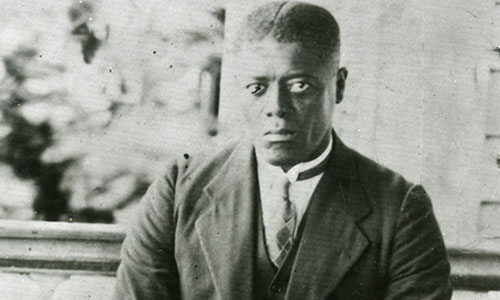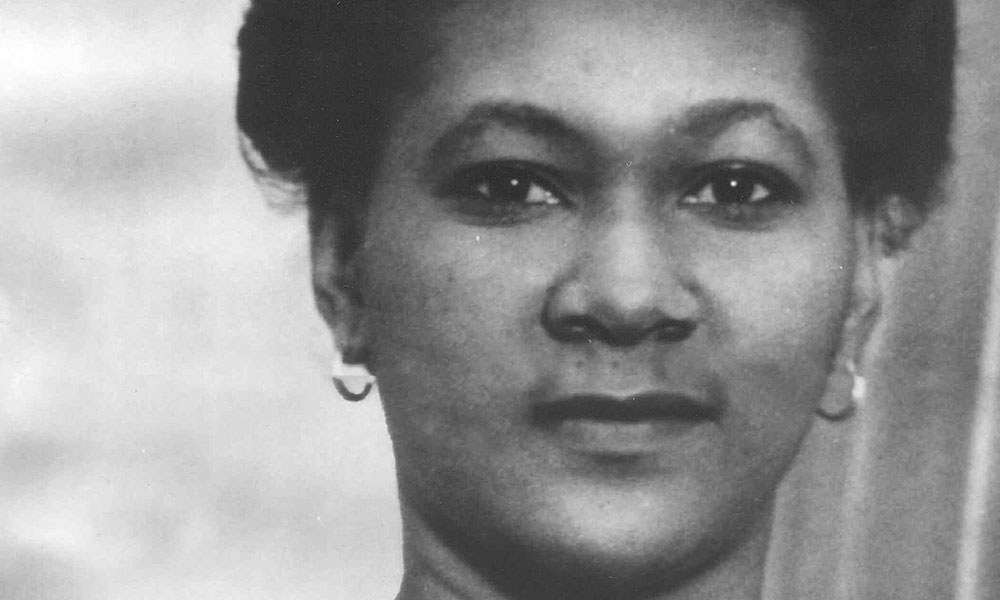
J M Sebastian was born at Johnson’s Point in Antigua in 1893. He was the first of five children born to John Sebastian and his wife Sarah. His education lead young Joseph to become a pupil teacher then at the age of fifteen he attended the Mico Training College for Teachers in Jamaica from which he graduated with first class honours.
Sebastian returned to his native Antigua but soon after the Anglican Church assigned him to be the Headmaster of the St. George’s Anglican Elementary School in Basseterre, St. Kitts. Within the Anglican Church, he was a lay reader, a member of the Vestry and member of the choir. He also served at St. Peter’s and at Estridge.
It was in St. Kitts that Joseph Sebastian met and, in 1913, married Inez Veronica Hodge. Together they had twelve children. But the quiet life of the Anglican Primary School teacher was soon abandoned for a more colourful if sometimes turbulent political career. On the death of Frederick Solomon, Joseph Sebastian resigned his post as teacher to become President of the Universal Benevolent Association (UBA) and it was under his leadership that the organization grew increasingly moderate in outlook and acquired a printing press that gave it a far-reaching voice. The Union Messenger laid special emphasis on the problems faced by the disenfranchised population of St. Kitts and Nevis - housing, health and sanitation, education, exploitation of children. Sebastian gave the newspaper his undivided attention and left the running of the UBA itself to Joseph Nathan. In 1931 Sebastian bought out the rights to The Union Messenger and formed a limited liability company called The Progressive Printery to run the paper. Sebastian also edited a monthly magazine called The Caribbean Trawler.
The end of the 1920s brought with it the great depression and labour unrest. In 1930 there was a strike at the sugar factory and in 1932 estate workers staged a one day strike forcing the factory to stop grinding. Both incidents highlighted the need for a more dynamic organisation. The leadership was to come from the middle class. In 1932 the Workers’ League was formed with Thomas Manchester as President. Sebastian was a founding member of the League and a member of its Executive Council. The Messenger continued to carry articles that raised concern for the plight of the working class. It also made information available about wages. When in 1935, the paper carried an item from the UBA about wage increases for sugar workers, the authorities blamed Sebastian and Nathan for the disturbances that followed. It was even thought that one of the men who was killed at Buckley's had been mistaken for Sebastian who looked a lot like him.
In the 1937 election, Sebastian and his assistant editor, Joseph France, were foremost among the League’s campaigners. Others included William ‘Doc’ Davis, Charles Halbert and Isa Bradley. The campaign resulted in a victory for the League with Thomas Manchester and Edgar Challenger being elected to the Legislative Council.
Soon after the election, Marcus Garvey visited St. Kitts. J. Matthew Sebastian had prior notice of the Jamaican’s intentions. On the 10th June, Garvey had written to Sebastian asking him to hire halls in which he could address an audience and to arrange for the sale of tickets at 1/- and 1/6 a seat in order to defray expenses. Worried by the volatile socio-political situation in St. Kitts, Sebastian took the letter to the Administrator. Both agreed not to publicise the visit. When Garvey arrived in November, Sebastian was at the port to welcome him. The Administrator felt that his presence was “a service” in the public interest.
Sebastian himself was elected to the Legislative Council in 1940 as a candidate of the Workers League and for a second time in 1943. He was also elected to the Federal Legislative Council of the colony in that same year. In 1940, The St. Kitts-Nevis Trades and Labour Union was launched. Sebastian was among those who assisted in its formation. A few weeks later, in April of that same year, the Sugar Factory workers went on strike. Sebastian, seeing the difficulties they were going to have to face, appealed to them to return to work. The response of the workers was very antagonistic. He was shouted down and had to be lead away for his own safety. However in 1942 Sebastian succeeded Manchester as President of the Workers’ League and in 1943, with an impending general strike and following Challenger’s resignation from the Union, he once again found himself at the forefront of the Union leadership with Joseph France as the General Secretary. However, Sebastian’s moderate leadership was not to last long and in 1944 he resigned in opposition to another strike called by the Executive of the Union.
Joseph Matthew Sebastian died at the Cunningham Hospital on the 25th June 1944.




